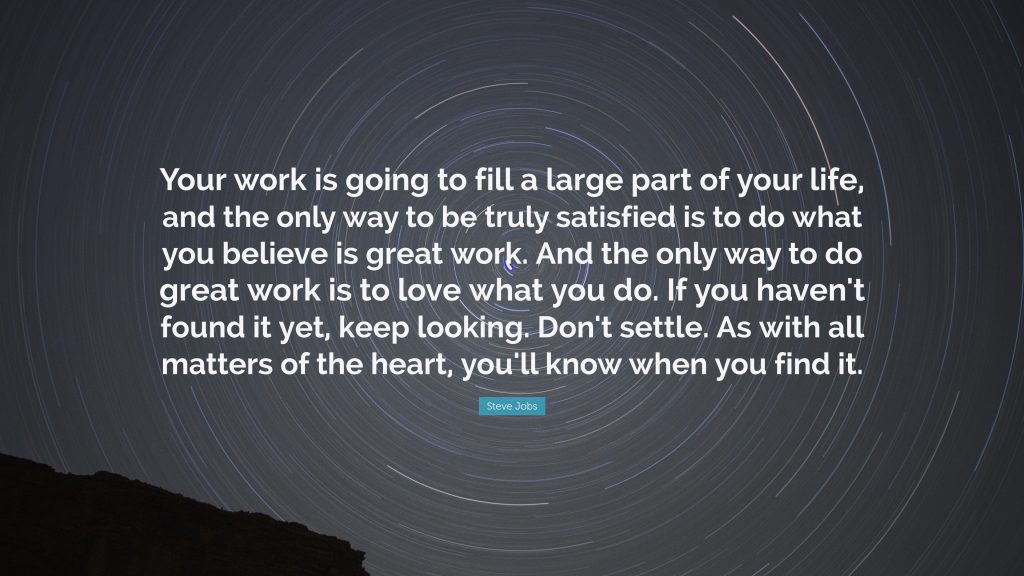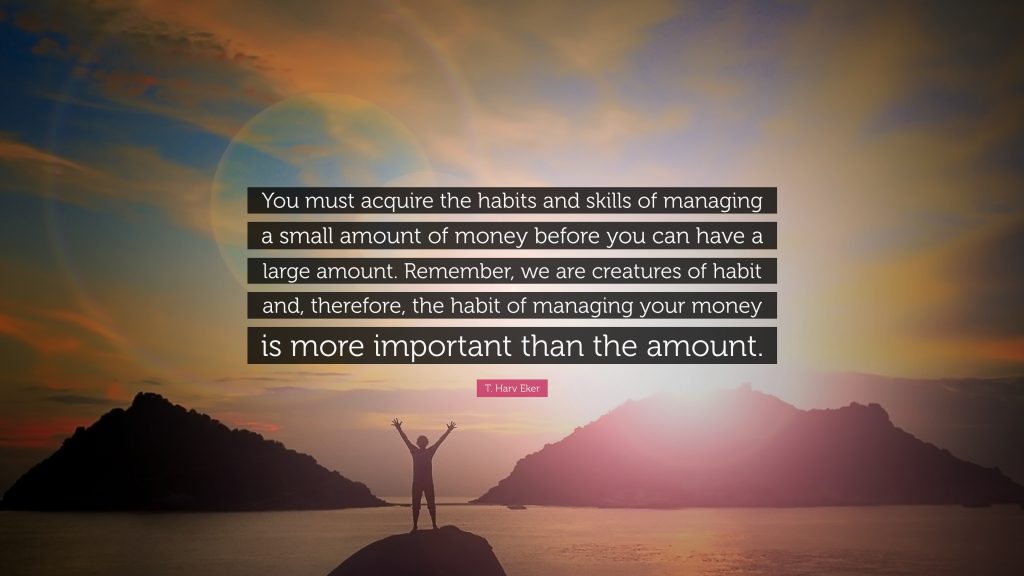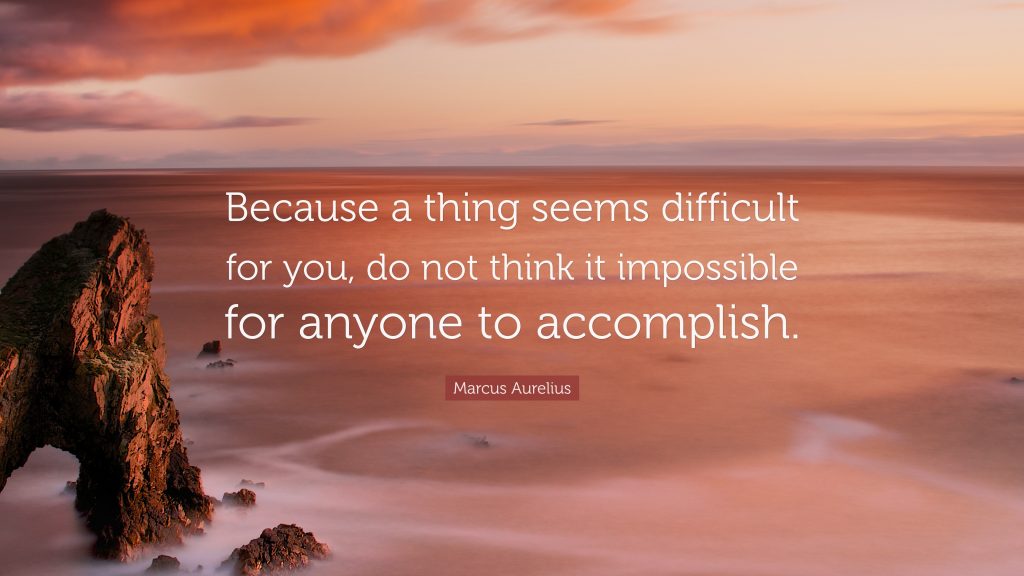My earlier post, about the life-altering decision to follow my heart and do what I love, seems to have struck a chord with many people. However, changing career, especially from a successful one to a more uncertain one like starting your business or becoming an artist, can be daunting. Fear sets in, and fear can be paralyzing. We know that we should act, do something, but we don’t.
“Why don’t I share what I did ?” I then thought. So here it comes, my career change guide! I’ve outlined below the steps I’ve taken once I’ve decided to leave the corporate world.
1) Start With the “Why”
Examine your motives. Take some time to reflect on why you’re thinking about such a major change in your life. For example, are you happy with the field you work in and the company, but your boss is a pest? In this case, it would be more helpful to change roles and work for somebody else.
Or you’re overwhelmed, and tired, and stressed out? Stretched at maximum and beyond, even though you love what you do, and your boss is an angel? Changing your career may not help if you don’t learn to manage your time and stress level.
The point? You must be doing this for the right reason.
It would be best if you went into a direction you’re interested in, rather than running away from something, like a bad boss. You’re just postponing the inevitable.
Find your call. Think about what fills you with energy during the day. What did you enjoy you doing as a kid? What do you do when procrastinating? What activities absorb you so completely that you forget space and time? All these are good indicators of the things you should be doing.

When I ransacked myself, I knew in my heart what I was burning to do. Art. Easy.
2) Do Your Homework
OK, so you’ve found your calling. You want to start a jewelry brand. A garden services company. You want to dedicate yourself to helping people in need and run a foundation.
Whatever it is, don’t jump to the fun part like creating a fancy website (it’s so much fun, I know!) or ordering new business cards. You’d be setting yourself up for failure.
By failing to prepare, you are preparing to fail. - Benjamin Franklin. Share on XInvest some time to research your new field. You could, for instance, join professional associations and look up more information on the Internet. Attend meetings and join relevant groups on LinkedIn or Facebook. Sign up for alerts and newsletters. Set aside some daily search time and gather information.
Connect with people. This is key. For example, once I started getting serious about photography, I joined the Swiss Camera Club on Facebook and went to a photo walk in Lucerne to meet other fellow photographer-wannabees. I even got a photo included in the local news coverage of the event.
Talk to your mentors, talk to friends, talk to your neighbors, talk to your delivery man – they all can offer insights and different perspectives. Then, you can prepare a 30 seconds elevator pitch outlining what you’re planning and asking for input and advice.

Don’t be shy and put out feelers in your network, both in real life and on, say, LinkedIn. Don’t be afraid to reach out to people; most people are glad when someone is interested in their particular field and expertise and are more than happy to help.
Try it out! You can start on a small scale during your leisure time, weekends and test your approach as I did. I’ve built a website, created a professional Facebook side, joined Twitter and Instagram, all during evenings and weekends – and then started posting things, commenting on other photographer’s work in their social media, and following photographers that inspired me.
3) Prepare Financially
There’s no way around this: you need to think about money. A major career change is stressful, and financial uncertainty it’s likely to top the list.
Make an honest review of your financial situation and decide what you need to do to survive during the time your new career takes flight. Don’t assume money will come on the first day if you want to start your own company. It won’t. If you feel you don’t have the skills for this or simply want a second opinion (it’s an important decision, after all) – seek professional advice. It’s an investment well worth the money. Or ask someone you know and trust who has a successful track record in personal finance.
Manage your debts. Ideally, you shouldn’t start your new life with debts. Clear any debts if possible or use help to create a debt management plan. For example, a mortgage is fine as long as you are confident you can keep up with the payments. Don’t take any loans, so you’d be in debt before you have even started. This brings me to …
Use free resources. Don’t invest a lot in the beginning; you can do that later when you feel confident that things are going well. There are many free options out there to get you started – you only need to do an Internet search. For instance, you can start with a free WordPress site, leverage the free themes and plugins; and look up copyright-free images and sounds. Later you can host in on your own domain if you wish, add more fancy plugins, and an online shop.

Save first, spend later. I would also recommend having a six to twelve months buffer saved. Things will happen, as things tend to do in life, and you want to be prepared when that happens. For example, say your heating system malfunctions during a frigid winter. You’d have no choice but to fix it then – you cannot wait until spring when your royalties come in. Knowing you have a buffer would alleviate the stress of the unknown.
Investigate options. Research whether there are any grants or scholarships you can seek. This way, you can get some funding without getting in debt.
Think about what you’d be gaining by earning less money. Things like more time for your family, a better work-life balance, a sense of peace, and personal fulfillment.
4) Leverage Your Current Skills
You may think that you’re starting from scratch in a new career. After all, you’d be doing something completely different. Right?
Wrong!
You have work experience in your current job. As a result, you can successfully apply some of the skills in your new career.
Do a skills inventory. What are you good at? What did you learn in your career? Examine your past and current roles, as well as any volunteer work. It could be communication, influencing people (all those corporate meetings selling new projects to executives, heh?), finance, marketing, or tech support.
Say you work in marketing and want to be a photographer. You could use your marketing knowledge and experience to promote your photos. My friend’s husband, who did work in marketing, was inspired by my side photo project (at the time) and started a commercial photography business. Successfully I may add, the guy is a marketing wizard.
I can't say it enough that learning how to learn is one of the greatest skills anyone can have. - Mark Cuban Share on XAt the same time, an inventory will show you what skills you’ll have to learn. For example, maybe you’re good at designing jewelry but have no idea how to transform the raw silver into the ring or the bracelet you can see in your head or put on paper. Therefore …
Bridge the skills gap. Need a course? Search the Internet. There are plenty of free online courses, YouTube tutorials on basically everything (learning Japanese? training your dog? how to succeed in business?), and nerd blogs answering the very question you’re asking. You could also enroll in an evening course or one-day seminars or workshops.
Sign up for courses while in your current job. Communications skills, project management, or influencing without authority can be of help in any career.
5) Create a Plan
By now, you should have a pretty good understanding of what it is that you want to pursue (for the right reason), knowledge about that new field and people who can help on the journey, the financial impact, what you know, and what you don’t.
Are we ready then?
Not quite yet. Just bear with me for a bit longer.
Now that you have gathered the information, you need to create a plan. This will be your roadmap for the journey in front of you, the beacon of light guiding you along the way.

Make it a written plan. Your head’s for having ideas, not for holding them as “Get Things Done” David Allen puts it. Do you need any new skills (identified above)? Then plan for learning as well. Having a written plan makes it more real, reminds you of your commitment, and helps you track progress.
Involve your inner circle. You may want to involve your partner, close family, and maybe a few trusted friends as this will likely impact them too. Listen to them and consider their input. But in the end, follow your gut. Don’t let others dictate your way.
6) Keep the Door Open
Don’t burn your bridges. Leave your job graciously. Hand over your responsibilities and train your replacement as you wish someone else would do it for you were the roles reversed. It’s tempting to focus on your new career and do the bare minimum before leaving. In two words: Don’t! It’s simple courtesy, and it costs nothing. Even more so if you’re not parting ways amicably, be the bigger man (or woman). You never know what happens, and you may need a way back. This is why you should …
Have a backup plan. Many people don’t want to think about failure, so they start the journey into the unknown with no plan in case things go south. Don’t do this! You know how they say, “Better safe than sorry.” It’s likely not what you want to think about, but it’s an easy investment in your future self. This doesn’t necessarily mean you’d go back to your old job, but for instance, you could come back as a part-time consultant to wait out the bad times. In the same spirit, keep up to date on what happens in your old field, renew certifications if needed, and so on.
You just need a good plan and then a backup plan! - Katherine Kelly Share on XStay in touch. In all that excitement and thrill often brought by new beginnings, you may forget to keep the connection to your old world alive. Your former colleagues or business partners may not necessarily be part of your everyday now, but they can be your ambassadors or mentors. They can testify about your skills and provide introductions or advice. You could invite people for lunch, congratulate them on an anniversary or promotion, and send them tips about things you know they’re interested in (send me any good tips on how to get rid of snails in the garden, and I’ll be your friend for life!). Do this regularly, and not only when you need something – people see through that.

Be present. Maintain a presence and be active on professional networks, e.g., LinkedIn, by appreciating and commenting on your connections’ activities and sharing articles on topics of general interest such as time management or creativity. Make it easy for people to remember you. For example, say that one of your former colleague’s cousins works at a fashion magazine, and she is looking for some hobo jewelry for a fashion feature photo shot. Your colleague now remembers that you left to start your own jewelry business; s/he’ll pass on your name to his/her cousin. It may or may not work out in the end, but it’s the first step. Maybe your jewelry is not hobo enough for this shoot, but s/he may like it and reach out to you in the future.
7) Have Faith in Yourself
Embrace your fear. All beginnings are a thrilling mix of excitement and fear, like a rollercoaster ride. Don’t let that fear overwhelm you. You know you are doing the right thing. Trust. Have faith. True success is being afraid and still doing it anyway. It’s OK to feel fear; I would be concerned if you didn’t. But don’t let that fear stand in your way. Acknowledge it (I am afraid of this unknown), look at it objectively (it’s normal to be afraid when you’re doing something new), and then act.
The meaning I picked, the one that changed my life: Overcome fear, behold wonder. - Richard Bach Share on XFeel the love. Know that you are never alone. There’s always help when you need it – but only if you ask for it. Reach out to people in real life and online; ask questions when you don’t know how to do something, or things go wrong, and you need a solution. Talk it over with a friend. Reach out to formal support groups or organizations. Where there is a will, there is a way.

Overcome the biggest obstacle. You. Very often, we are our own saboteurs. We compare ourselves to others, and not in our favor. We measure ourselves and find ourselves lacking. We don’t believe we have anything to contribute. We don’t believe we have what it takes to succeed. We find ourselves incapable of acting, frozen like reindeer in the headlights.
So … I’m giving you a push. Don’t just read this article; act on it. Now. Good luck!
Related Posts
- Chieh Huang “How to know if it’s time to change careers” Video (4’)
- Ruth Chang “How to make hard choices” TED Talk (14’30)
- Why I Walked Away from My Six-Figure Career
- Héctor García and Francesc Miralles, Ikigai
If you liked this post, share it on your preferred social network or forward it to a friend.
